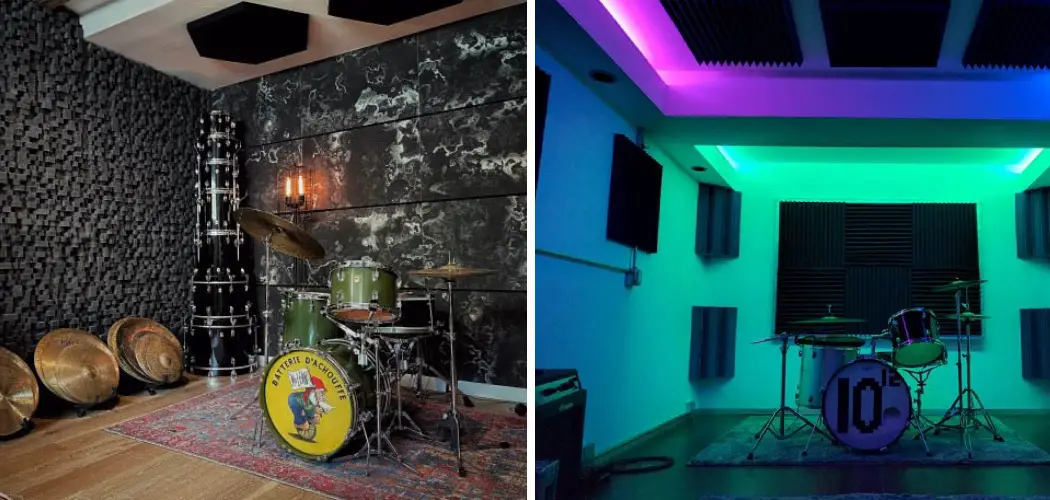Are the walls in your basement vibrating due to practice sessions with your band? Do you end up turning down the volume just for neighborly pleasantries and would like to be able to play at full blast? If so, you’re probably considering soundproofing your basement and creating a space where you can fully express yourself musically without having to worry about noise pollution.
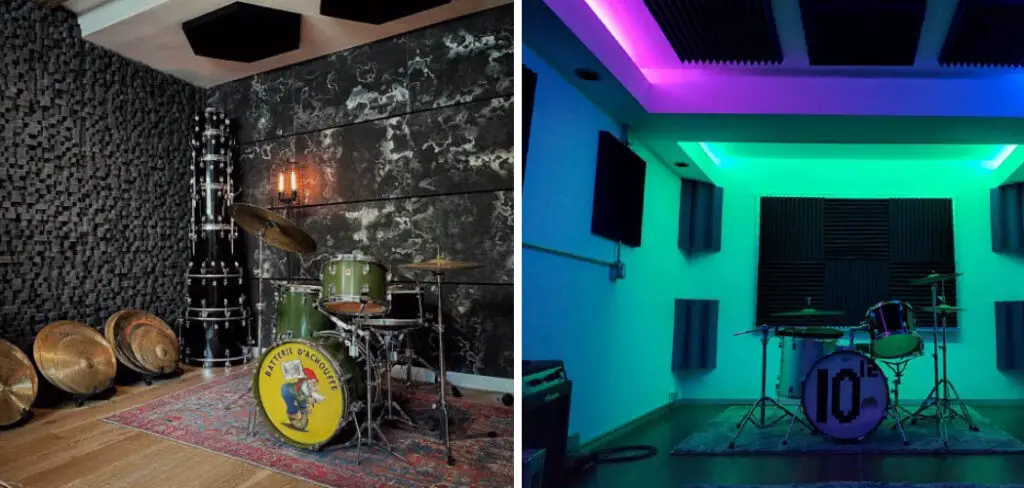
Soundproofing is easier than it sounds – there are lots of ways that you can reduce sound transmission from exiting your room and entering other areas of the house or disturbing neighbors. In this guide, we will break down the basics for soundproofing a basement for band practice and explain all the tools necessary to set up a professional-sounding studio right at home. Let’s get started on mastering how to soundproof a basement for band practice like a pro!
Should You Soundproof a Basement?
Before you decide to soundproof a basement for band practice, it’s important to weigh the pros and cons. On the one hand, soundproofing can provide an ideal place for band rehearsal and recording without bothering neighbors or family members. It can also help prevent noise pollution from escaping your basement and entering other parts of your home.
On the other hand, soundproofing is expensive and time-consuming. It may not be worth the effort if you only plan to practice occasionally or for a short period of time.
When deciding whether to soundproof your basement, consider how often you’ll use it for band practice and how important noise reduction is in your home. If you’re determined to soundproof your basement, there are many different materials and methods available for achieving this goal. Soundproofing a basement can be done with the right combination of products and techniques. Read on to learn more about soundproofing a basement for band practice.
The first step in soundproofing your basement is to determine the level of soundproofing desired. This will help you decide which materials and techniques to use. You should also consider the size of your basement, as this can affect the type of products used or methods required for adequate soundproofing.
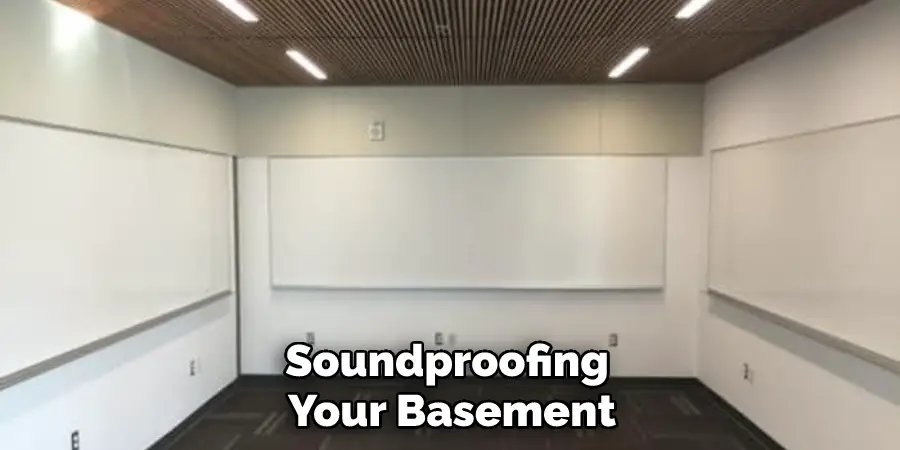
Once you’ve determined the level of soundproofing needed, you can begin to look for materials and products to use. Some of the most effective soundproofing materials include foam panels, acoustic tiles, sound absorbers, and floor mats. You can also hang heavy curtains or drapes to reduce noise escaping your basement. In addition, using rugs or carpets on the floor can help absorb sound waves and provide additional noise reduction.
9 Methods How to Soundproof a Basement for Band Practice
1. Soundproofing Foam
Soundproofing foam is one of the most popular ways to soundproof a basement for band practice. The foam absorbs sound and prevents it from bouncing off hard surfaces. It comes in many shapes and sizes, so you can choose the one that best fits your space. You can attach it to walls and ceilings with adhesives or staples. You may also want to consider adding acoustic panels around the room, which are specially designed to absorb sound energy and reduce reverberation.
2. Soundproofing Curtains
Soundproofing curtains are another effective way to soundproof a basement for band practice. The curtains absorb sound and prevent it from echoing around the room. To ensure maximum soundproofing, the curtains should be hung from the ceiling or attached to the walls. They can also be used to cover windows and doors to block outside noise.
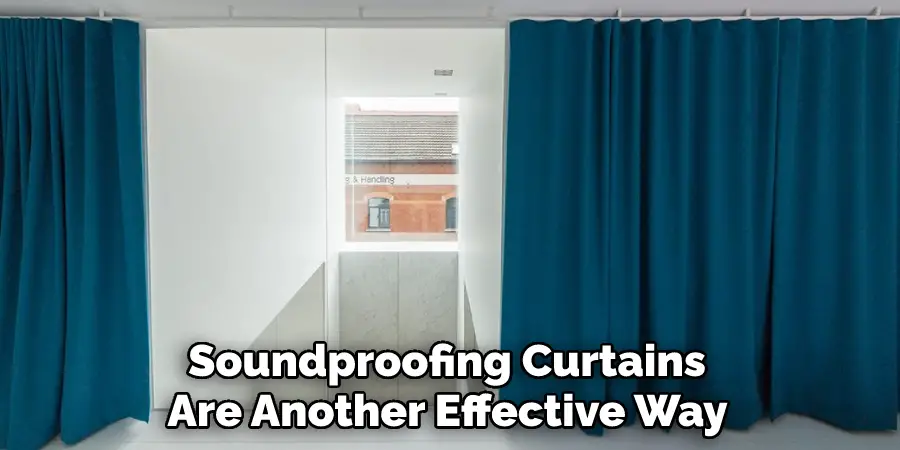
To make sure the curtains are effective, it’s important to buy those that have a high sound absorption rating. Additionally, lines of stitching can help the curtains better absorb sound. Additionally, extra layers of material, such as blankets or rugs, placed over existing curtains will add extra soundproofing.
3. Soundproofing Blankets
Soundproofing blankets are another popular way to soundproof a basement for band practice. The blankets absorb sound and prevent it from bouncing off hard surfaces. As a general rule, heavier blankets will be more effective at soundproofing than lighter ones. Additionally, you can use multiple layers of soundproofing. Blankets to increase their effectiveness. When hanging the blankets, make sure they are taut and free from any wrinkles.
This will ensure that sound waves don’t reverberate off the blankets and bounce around the room. You can hang them from tracks hung on your ceiling or attach them to a wall. Foam blankets are a particularly effective option for soundproofing your basement. If you’re looking to save money, second-hand blankets can be just as effective as new ones.
However, make sure to check the quality of the blanket before you buy it. If you can hear sound coming through the blanket, it won’t be effective at soundproofing your basement.
4. Acoustic Panels
Acoustic panels are another effective way to soundproof a basement for band practice. The panels absorb sound and prevent it from echoing around the room. The panels can be placed in various places around the room to help soundproof it. Acoustic foam is a popular choice for its ability to absorb sound and prevent it from bouncing off hard surfaces. There are various types of acoustic panels available, so research different options to find the best fit for your basement.
As a bonus, acoustic panels can also help to improve the acoustics of any space and make it easier for musicians in the band to hear one another better. Installing acoustic panels can be a bit time-consuming, but it is well worth the effort for the soundproofing and acoustic benefits.
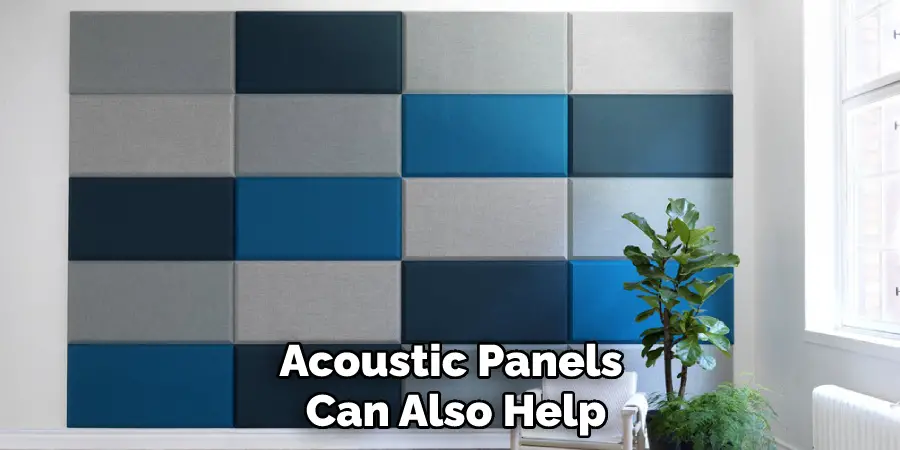
5. Carpeting
Carpeting is another popular way to soundproof a basement for band practice. The carpet absorbs sound and prevents it from bouncing off hard surfaces. Carpeting your basement is a relatively inexpensive and easy way to improve soundproofing. Be sure to buy a thick carpet that is designed for sound absorption.
You may also want to add an underlayment between the carpet and the flooring if you are looking for even more soundproofing. Additionally, if you have tile flooring, you can use acoustic sealant to reduce noise further. Acoustic sealant is a thick liquid that seals the gaps between tiles and prevents sound from escaping. It is easy to apply and will help make your basement more soundproof for band practice.
6. Rugs
Rugs are another effective way to soundproof a basement for band practice. The rugs absorb sound and prevent it from echoing around the room. Place rugs on the floor and hang them on the walls for improved acoustic dampening. You can also choose to install wall-to-wall carpeting if you want to reduce noise levels even further.
A bonus of adding rugs to the room is that they add insulation and warmth, making it a more comfortable space for rehearsals. Additionally, using area rugs can help define different areas in the basement, such as the practice space and any seating areas used by band members or guests.
7. Furniture
Furniture can also be used to soundproof a basement for band practice. Heavy furniture, such as couches and chairs, can absorb sound and prevent it from bouncing off hard surfaces. To maximize sound absorption, choose furniture with upholstery that is thick and dense. Avoid thin fabrics or leather material, as these will not absorb much sound. Additionally, placing rugs on the floor can help to dampen sound bouncing off of hard surfaces.
8. Soundproof Door Seals
Soundproof door seals are another effective way to soundproof a basement for band practice. The seals absorb sound and prevent it from escaping the room. They come in a variety of styles and sizes, so you can find one that fits the size and shape of your door.
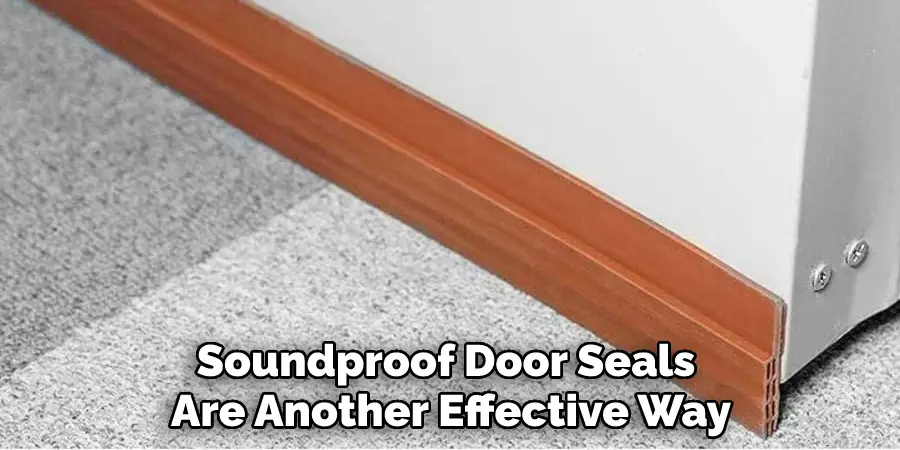
You may also consider using a combination of soundproof door seals and foam padding to create an even more effective sound barrier. Additionally, it’s important to make sure that the door is properly sealed when not in use; any openings or gaps can allow sound to escape.
9. Soundproof Windows
Soundproof windows are another popular way to soundproof a basement for band practice. The windows absorb sound and prevent it from escaping the room. The windows are usually made of thick glass and are installed in a frame that fits the existing window size. This can help to reduce outside noise and keep sound from escaping the room while still allowing natural light inside.
Soundproof windows can be expensive, but they are worth the investment if you want to create a private practice space for your band. Additionally, soundproof windows can help keep your basement warmer in the winter and cooler in the summer, meaning that you’ll save money on energy costs.
By using these measures to soundproof your basement for band practice, you will create a more comfortable environment in which to make music. Taking the time to properly install the right soundproofing materials can make a huge difference in the quality of your music.
Conclusion
If you’re looking for a way to keep the noise down while you practice, soundproofing your basement is a great option. By following these simple tips on how to soundproof a basement for band practice, you can make sure that your band can practice without disturbing the peace. Plus, soundproofing will also help to improve the quality of your music. So if you’re serious about making music, soundproofing your basement is a must.

